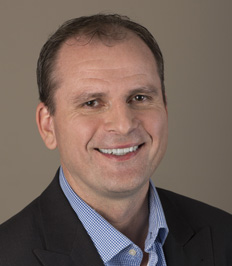After months of hesitation and years of planning the care.data initiative is finally set to launch soon, writes Stephen Midgley, pictured, VP of Global Marketing and Product Management at Absolute Software.
Combined with a drive to increase mobility across the NHS through mobile device and technology-led initiatives, this news means that it will soon become much easier to share data securely across the NHS. These developments have the potential to transform health service delivery on many fronts. Areport released by Volterra Partners and EMC has highlighted how access to data analytics can dramatically improve the efficiency of the NHS, with potential savings estimated between £16.5bn and £66bn per year. Given the £34bn funding gap the NHS is facing by 2020, it’s clear that harnessing technology in such a way will be crucial in preserving the values of a free NHS, all the while improving and transforming the patient experience.
While the benefits of electronic records and proactive management and use of data analytics are becoming clearer, there remains a great deal of scepticism regarding the safety of sensitive and critical information. There is a lot at stake should the NHS get this wrong: reputation, the risk of heavy fines, and public outcry that could put a halt on any progress made thus far. It’s clear that with data comes responsibility and the NHS will have to make sure that they are well prepared for any and every eventuality. With this in mind we have outlined a holistic, three stage approach to ensure that data is kept secure. This consists of education, policy and technology.
Policy – With the array of technological advances, the NHS will need to develop and communicate a clear data policy to staff. The language should not be complicated or overly technical, but rather in a tone that everyone can understand. Nothing should be lost in translation. Just as this clarity is needed for NHS employees, the same level of understanding should also be felt by the general public. A lot of the objection to initiatives such as care.data stems from a lack of communication. The government needs to make a concerted effort to clearly communicate policy objectives and implications – something the Labour party led with during party conference announcements, stating the need for a digital “Magna Carta”.
Education – The NHS must take a proactive approach to educating and training staff on the importance of securing data. The emergence of a more ‘tech-savvy’ work-force has significant benefits, but can also result in a blasé attitude to security measures. Following three critical data breaches at Great Ormond Street Hospital, the Information Commissioner’s Office issued a warning that all hospital staff members must be fully trained in data protection policies. Medical, nursing, and other healthcare related degrees already include modules regarding the organisation of patient data, but a more detailed and comprehensive focus on digital services and mobile devices will be crucial going forward. This is vital to ensure data security and to protect the reputation of the NHS.
Technology – Having an underlying technology software solution which can protect the NHS and its data in the event of any security failings will ensure all bases are covered. As initiatives such as care.data come in to fruition, the NHS needs to be able to persistently track, manage and secure all data that is held on devices used in and outside of the NHS.
The NHS stands on a tipping point. The potential to completely revolutionise how the NHS is run carries enormous benefits for all involved. It is therefore imperative that the health service takes the protection of data seriously and that this is communicated as a number one priority. Only when the steps outlined above are properly implemented will press and public opinion begin to change, and the NHS will truly get the chance to transform the delivery of patient care.










